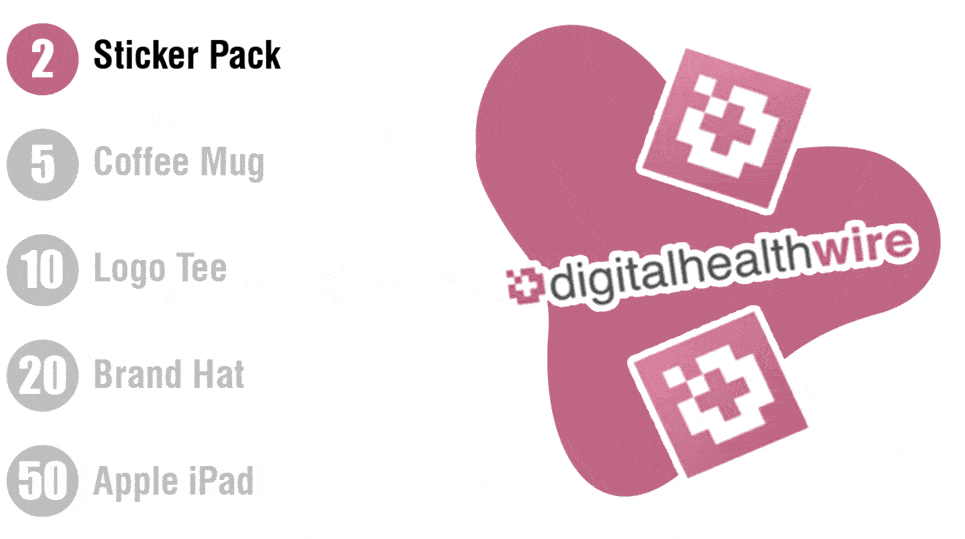|
Rock Health Q3 | Aug Hospital Margins
October 6, 2022
|
|
|

|
|
Together with
|

|
|
|
“Part of our strategic calculus is that it’s always best to raise when you’re in a position of choosing to raise, rather than needing to raise.”
|
|
Thirty Madison CEO Steve Gutentag
|
|

|
|
The end of Q3 means it’s time for another digital health funding wrap-up from our friends over at Rock Health, and many of you can probably guess how the numbers looked:
- Total Q3 funding plunged 48% to $2.2B, the lowest quarterly amount since Q4 2019.
The low total puts us on pace for less than half of last year’s $29.2B haul, but the full story isn’t as grim as it sounds. Smaller round sizes, rather than fewer rounds, dragged down the overall number.
- Q3’s 125 deals only represented a 14% drop, but a newfound preference for early-stage startups caused the $100M+ mega-rounds to dry up completely with the exception of Cleerly ($223M Series C) and Alma ($130M Series D).
- Only six Series C or higher rounds took place during the third quarter, accounting for less than 5% of total funding volume. By comparison, Q2 saw 19 late-stage rounds and Q1 had 32.
Rock Health floats three explanations for the late-stage slowdown: 1) Many rounds were pulled forward to 2021 to strike while the iron was hot. 2) Other raises are taking place behind the scenes through round extensions or venture debt. 3) We’re in the middle of the biggest bear market in a decade… so some funding just isn’t happening.
The other major shift taking place with investors can be seen with the top funded value propositions and clinical indications.
- Value Props: Non-clinical workflow companies vaulted into first place ($1.8B YTD), suggesting that staffing shortages and employee burnout remain top priorities.
- Clinical Indications: Digital mental health companies held on to the throne ($1.7B YTD), but oncology ($1B) and cardiovascular startups ($0.9B) have been gaining ground.
The Takeaway
It’s no surprise that this year’s public market correction is causing private market investors to hold out for smoother sailing, but if Rock Health’s Q3 report shows us one thing it’s that truly innovative startups will attract capital no matter how turbulent the macroeconomic waters. Rock Health also left us with an important reminder that “rational prices promote long-term market health and, if anything, diminish near-term worries.”
|




|
|
Creating an Exceptional Engagement Experience
With a surge in experience‑oriented disruptors entering the healthcare industry, patient engagement is becoming a crucial competitive differentiator. Get your copy of Nuance’s guide to delivering intelligent interactions and a better experience at every touchpoint.
|
|
Meet the Hyperfine Swoop
Hyperfine’s Swoop Portable MRI is redefining imaging accessibility by bringing MRI to the point-of-care. See how the Swoop system is helping hospitals eliminate the logistical challenges of conventional MRI scanning and unlock new revenue potential.
|
|
- August Hospital Margins: Hospitals appear likely to end the year in the red despite margin improvements in August, according to Kauffman Hall’s latest National Hospital Flash Report. Margins improved by a median of 4.2 percentage points over July due to higher outpatient volume and an increase in elective procedures, but the report calls out new market entrants like urgent care centers and standalone surgery centers as “chipping away” at hospital revenues.
- Grow Therapy Series B: Grow Therapy closed $75M in Series B funding ($45M equity, $30M debt) to help independent therapists launch their own practices by equipping them with a purpose-built EHR, virtual support for administrative tasks, and help with payor coverage. Grow Therapy currently works with over 3.5k therapists and gains 40% of its new users through word of mouth, which makes it seem like the startup has enough traction to compete with other up-and-coming therapy platforms like Alma and Headway.
- Cardiac Telemedicine + RPM: Telemedicine alongside remote patient monitoring may reduce cardiovascular-related hospitalization and death risk among adults with heart failure, according to a meta-analysis of 34 studies in The Lancet (n=13.2k patients, 6.6k w/ telemedicine). The RPM and telehealth combination was associated with a steep 29% reduced risk of CV-related hospitalization and a 17% lower chance of CV-related mortality, although telemedicine in isolation had no effect on all-cause hospitalization or mortality.
- MSK Telemedicine: It’s officially been one year since Memorial Sloan Kettering launched its “MSK Telemedicine” platform, and the cancer center announced that it’s provided over 200k virtual appointments since just last August. MSK Telemedicine looks like a solid case study after successfully collaborating with Microsoft, Accenture, and Avanade to create Virtual Clinic Rooms with stellar satisfaction ratings.
- KP Adds Ginger Coaching: Kaiser Permanente added Ginger’s emotional support coaching to its digital self-care portfolio, allowing members to text coaches about common challenges such as stress and sleep issues without needing a referral or appointment. Headspace Health has been quick to pick up new partnerships since acquiring Ginger last year, and KP is adding another 12M members to the 25M members already accessing Headspace’s coaching services.
- AI Research’s RCT Gap: Out of over 28k healthcare AI studies performed from 2012 to 2021, only 41 were randomized control trials, and none adhered to the CONSORT-AI reporting guidelines. AI RCTs are becoming more common (36 of the 41 were from 2019-2021) and most of the RCTs had a low risk of bias, although only 11 of the trials reported race/ethnic data. The study and some passionate online conversations blamed AI’s research-to-clinic translation gap on the lack of RCTs.
- OneOncology Goes VBC: Cancer care platform OneOncology announced that all 14 of its partner practices applied to join Medicare’s new Enhancing Oncology Model, allowing them to take on full-risk for certain episodes of care involving chemotherapy. OneOncology provides analytics and clinical support to over 850 providers and 485k patients, making this move a big momentum-builder for specialists looking to take part in value-based care.
- Rippl Debut: Mental health startup Rippl emerged from stealth with $32M in seed funding that should go a long way toward helping it build out its teletherapy and RPM platform for seniors with dementia and other neurocognitive conditions. Rippl made it very clear in its announcement that it intends to put its clinicians at the center of its business, and the launch funds will help hire and train these clinicians while it opens a center in Washington to support two upcoming pilot programs.
- Telehealth for Suicidal Ideation: Although telehealth hasn’t traditionally been well-equipped to handle suicidal ideation, a JMIR study conducted by Brightside Health (n=8.6k patients) found that antidepressant medication and telehealth-based clinical decision support could be an effective combination. Brightside’s platform includes precision-prescribing based on patient surveys and telehealth-integrated CDS for providers, and patients in the treatment group were 4.3x more likely to have suicidal ideation remission after just 12 weeks.
- Tasso Teams Up With Catapult: Tasso is teaming up with Catapult Health to bring its self-operated blood sample collection device into patient homes, helping them to detect risk factors for conditions like diabetes and heart disease. Catapult provides digital preventive care to 3,500 employers and over 2M people, and will now offer the Tasso+ blood collector (which replaces finger-stick tests) as part of its VirtualCheckup program.
|
|
Empower Your Staff With connectRN
Learn how connectRN’s nurse-scheduling app can empower your shift managers and community leadership with a more predictable and sustainable approach to staffing, so they can focus on providing exceptional care.
|
|
3 Ways to Ease the Pain of Provider Credentialing
Is provider credentialing adding cost and time to your bottom line? Check out Medallion’s new blog for three ways to ease the pain of provider credentialing so that you can focus on delivering quality care.
|
|
|
Share Digital Health Wire
|
|
Spread the news & help us grow ⚡
|
|
Refer colleagues with your unique link and earn rewards.
|

|
|
|
|
Or copy and share your custom referral link: *|SHAREURL|*
|
|
You currently have *|REFERRALS|* referrals.
|
|
|
|
|